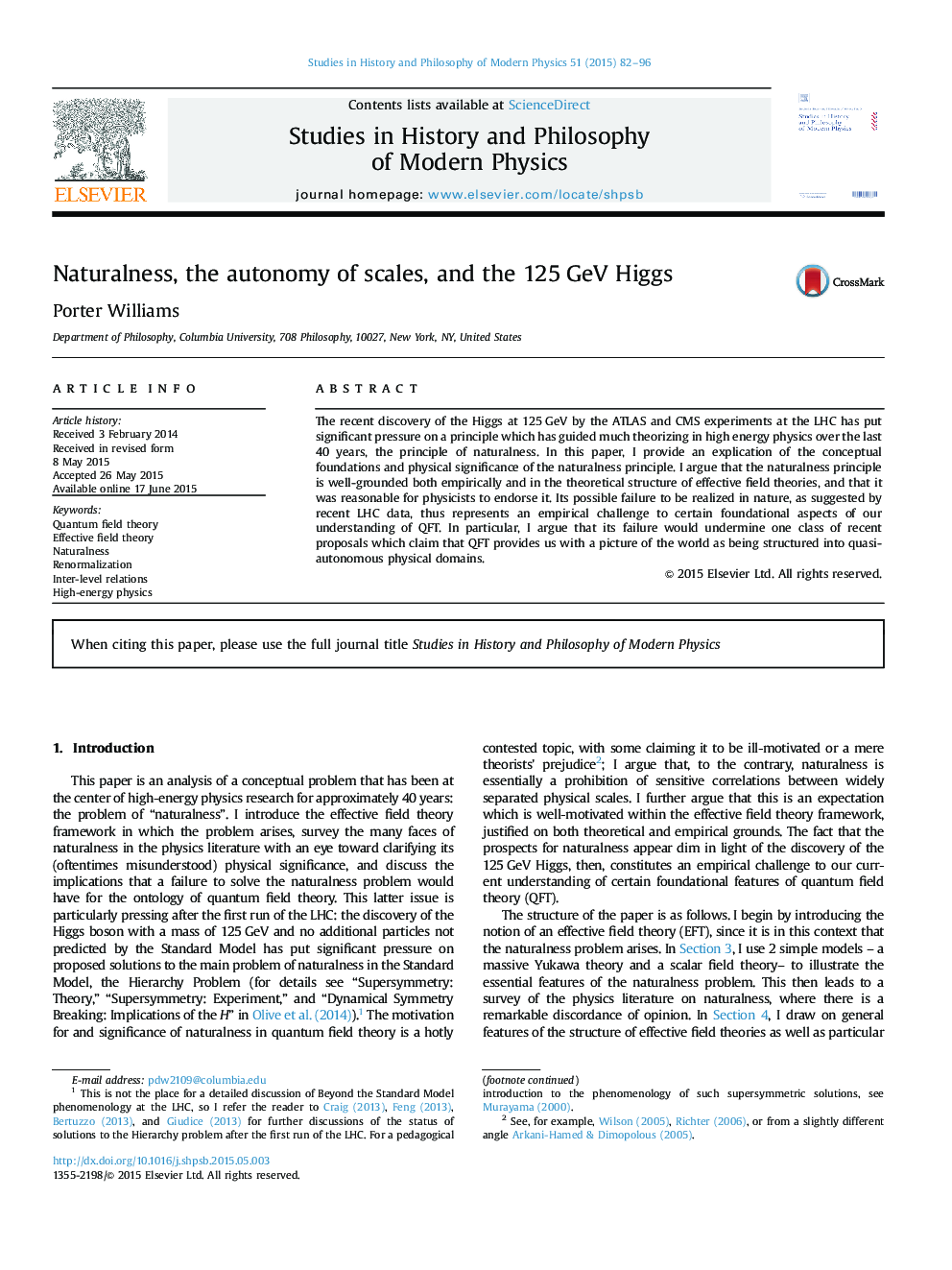| Article ID | Journal | Published Year | Pages | File Type |
|---|---|---|---|---|
| 1161111 | Studies in History and Philosophy of Science Part B: Studies in History and Philosophy of Modern Physics | 2015 | 15 Pages |
•Examine disparate notions of naturalness in physics literature.•Offer uniform and physically clear definition of naturalness in terms of sensitivity between scales.•Failures of naturalness have consequences for the ontology of quantum field theory.
The recent discovery of the Higgs at 125 GeV by the ATLAS and CMS experiments at the LHC has put significant pressure on a principle which has guided much theorizing in high energy physics over the last 40 years, the principle of naturalness. In this paper, I provide an explication of the conceptual foundations and physical significance of the naturalness principle. I argue that the naturalness principle is well-grounded both empirically and in the theoretical structure of effective field theories, and that it was reasonable for physicists to endorse it. Its possible failure to be realized in nature, as suggested by recent LHC data, thus represents an empirical challenge to certain foundational aspects of our understanding of QFT. In particular, I argue that its failure would undermine one class of recent proposals which claim that QFT provides us with a picture of the world as being structured into quasi-autonomous physical domains.
